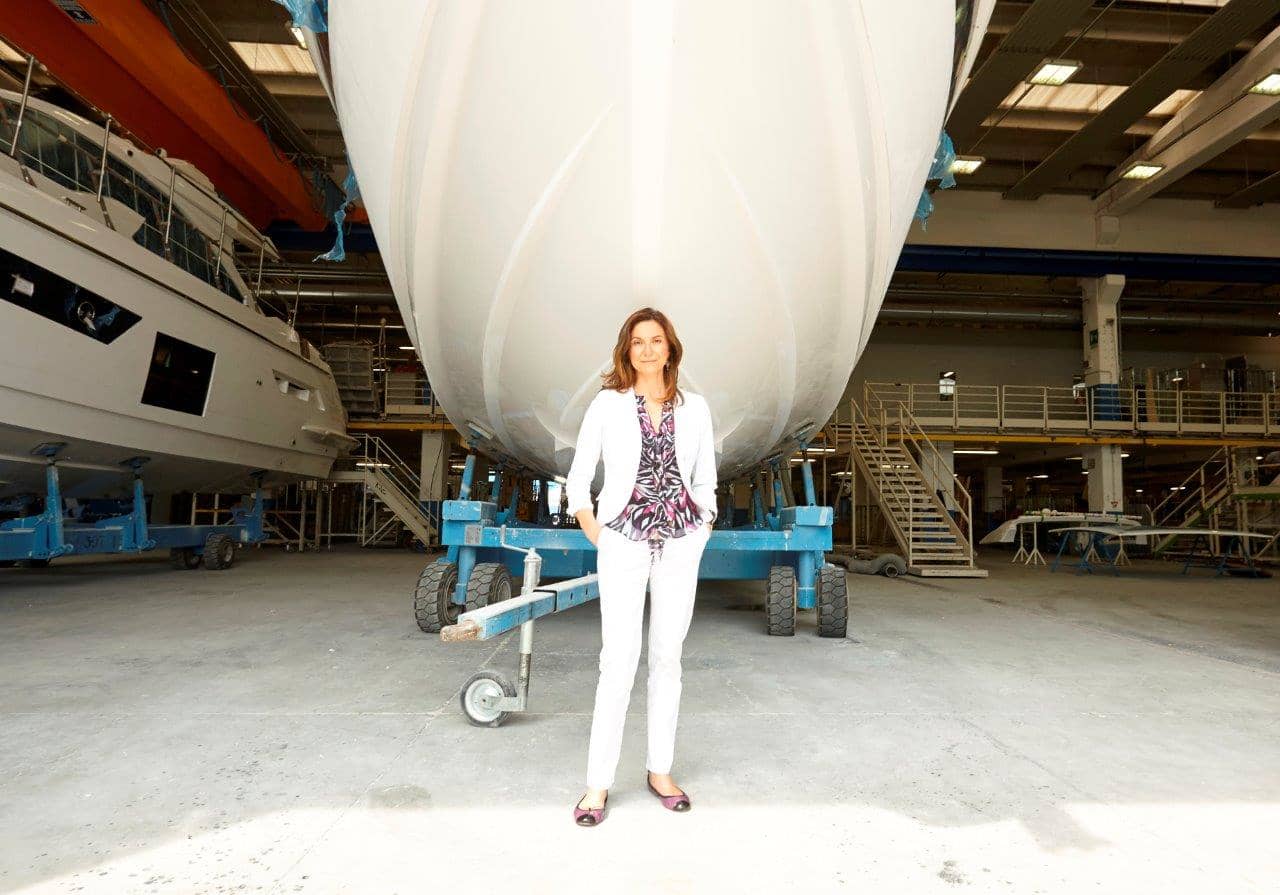Work From…Anywhere? Tips From Travellers Who Do ‘Workcations’ Right
Want to make your time off go further? Take advantage of remote work to set up in a holiday location for a week, even a month. The risk: missing the point of travelling in the first place.
ASHLEY SCHWARTAU escaped to a Mexican beach town just two weeks after starting a new job for a Chicago-based insurance company. It’s not that Schwartau, 38, is a late-blooming spring breaker. She and her husband both work remotely, so when winter arrived at home in Nashville, Tenn., the pair decided to clock in from a vacation rental with a pool in Playa del Carmen.
For the next four weeks, the couple took calls from their temporary home, while their 4-year-old son attended a bilingual preschool whose $350 monthly tuition would be implausible back in Nashville. After hours, the trio played at the nearby beach, lounged poolside or grazed at neighbourhood taco stands. Following a weeklong-vacation chaser at month’s end, they returned to Tennessee restored. “It’s hard for working parents to truly find moments of relaxation, and that was one of the most relaxing trips we’ve ever taken,” said Schwartau, who documented the trip on her blog to inspire others looking to expand their own definitions of remote work.
Unlike some full-time “digital nomads”—who skew young, male and child-free—Schwartau has no plans to permanently swap home life for stints in Lisbon or Bali. Instead, Schwartau used her hybrid “workcation” to capitalise on a remote-friendly job and temporarily set up shop away from home’s routines and responsibilities.
The trip also let her save some paid time off while still traveling, a strategy that appeals to workers in the U.S., where the average private-sector job affords just 11 days off after a year. With employers increasingly offering flexible work options, workcations seem to be a pandemic-accelerated trend with staying power. A 2023 study by Deloitte showed that one in five travellers planned to do some work on their primary summer trips, with many using flexible policies to eke out additional time away.
Still, obstacles abound. Jet lag can sap work output, sand will destroy your computer and dutifully clocking hours a block from a beach invites intense FOMO. It takes finesse to make workcations work—here’s how to pull one off.
Get in the (time) zone
Going too far afield—or heading in the wrong direction—can tug routines out of alignment. Dan Hammel of Benicia, Calif., works for a tech concern that follows Central time and offers staffers two annual work-from-anywhere weeks. Last fall, Hammel spent one off-kilter week working from the Italian city of Bologna. “My hours in Europe were probably about 4 p.m. to midnight,” he said of the need to align with his stateside colleagues’ workdays. After days spent touring nearby Modena and Parma with his wife, Hammel found the schedule challenging. “I like to be in bed around 10,” said Hammel, 45.
To avoid red-eye marathons, follow your natural sleep pattern to the optimal time zone. For Hammel, that meant Maui, where he worked remotely in May. “I would get up at 5 a.m. and would be done around noon,” he said. “We would have the whole rest of the day to nap, relax for a little bit after my workday, hit the beach, go to dinner.”
Make space
Remote work might conjure Instagram shots of laptops lolling on beach chairs, but such scenes don’t translate to meaningful productivity. Deloitte found that more than half of all travelers look for work-friendly spaces when booking accommodation. William DeSousa, 73, a public-relations professional from Osterville, Mass., craves more space than hotel rooms offer: He’s a villa guy.
For 16 years, he’s spent a month working from Greece with his husband and has learned that walls do wonders. “We both need to be on phones, or be on Zoom calls,” he said. “I think separate workspaces work best for couples.” This year, the pair will enjoy the beach-and-taverna circuit while clocking in from villas in Santorini and Crete.
Other travellers opt for hotels—such as Mama Shelter Shoreditch London and the Hoxton Chicago—with dedicated co-working areas and brisk internet. Whatever you decide, ask for bandwidth details before booking: The website Global Nomad Guide, which advises remote workers, recommends download speeds of at least 50 Mbps.
Log off
Many remote workers are loath to shut devices down, which can lead to post-workcation regrets. Commit in advance to logging off, said Jaime Kurtz, professor of psychology at James Madison University and author of “The Happy Traveler: Unpacking the Secrets of Better Vacations.” Tell yourself, “‘I’m going to work this many hours a day, and then I will go out and take advantage of the place,’” Kurtz said. She suggested travellers seek experiences that sideline devices completely, such as riding a bike or joining a food tour.
And while remote work can help PTO go farther, don’t mistake working getaways for more truly replenishing vacations. That’s why many workcationers, including Schwartau and Hammel, follow remote stints with actual time off, using working trips as a launchpad for dedicated travel time.
Jessica de Bloom, a professor of psychology at the University of Groningen in the Netherlands, who studies the blurring frontiers between work and leisure time, considers true disconnection essential to thriving. A request for comment for this story prompted an out-of-office message, suggesting de Bloom lives by her own findings. “I am currently enjoying a vacation,” the auto-response read. “I choose not to work and check my emails, because research showed that working during holidays can be detrimental for my health.”
The Wall Street Journal is not compensated by retailers listed in its articles as outlets for products. Listed retailers frequently are not the sole retail outlets.
 Copyright 2020, Dow Jones & Company, Inc. All Rights Reserved Worldwide. LEARN MORE
Copyright 2020, Dow Jones & Company, Inc. All Rights Reserved Worldwide. LEARN MORE
This stylish family home combines a classic palette and finishes with a flexible floorplan
Just 55 minutes from Sydney, make this your creative getaway located in the majestic Hawkesbury region.
As Paris makes its final preparations for the Olympic games, its residents are busy with their own—packing their suitcases, confirming their reservations, and getting out of town.
Worried about the hordes of crowds and overall chaos the Olympics could bring, Parisians are fleeing the city in droves and inundating resort cities around the country. Hotels and holiday rentals in some of France’s most popular vacation destinations—from the French Riviera in the south to the beaches of Normandy in the north—say they are expecting massive crowds this year in advance of the Olympics. The games will run from July 26-Aug. 1.
“It’s already a major holiday season for us, and beyond that, we have the Olympics,” says Stéphane Personeni, general manager of the Lily of the Valley hotel in Saint Tropez. “People began booking early this year.”
Personeni’s hotel typically has no issues filling its rooms each summer—by May of each year, the luxury hotel typically finds itself completely booked out for the months of July and August. But this year, the 53-room hotel began filling up for summer reservations in February.
“We told our regular guests that everything—hotels, apartments, villas—are going to be hard to find this summer,” Personeni says. His neighbours around Saint Tropez say they’re similarly booked up.
As of March, the online marketplace Gens de Confiance (“Trusted People”), saw a 50% increase in reservations from Parisians seeking vacation rentals outside the capital during the Olympics.
Already, August is a popular vacation time for the French. With a minimum of five weeks of vacation mandated by law, many decide to take the entire month off, renting out villas in beachside destinations for longer periods.
But beyond the typical August travel, the Olympics are having a real impact, says Bertille Marchal, a spokesperson for Gens de Confiance.
“We’ve seen nearly three times more reservations for the dates of the Olympics than the following two weeks,” Marchal says. “The increase is definitely linked to the Olympic Games.”

Getty Images
According to the site, the most sought-out vacation destinations are Morbihan and Loire-Atlantique, a seaside region in the northwest; le Var, a coastal area within the southeast of France along the Côte d’Azur; and the island of Corsica in the Mediterranean.
Meanwhile, the Olympics haven’t necessarily been a boon to foreign tourism in the country. Many tourists who might have otherwise come to France are avoiding it this year in favour of other European capitals. In Paris, demand for stays at high-end hotels has collapsed, with bookings down 50% in July compared to last year, according to UMIH Prestige, which represents hotels charging at least €800 ($865) a night for rooms.
Earlier this year, high-end restaurants and concierges said the Olympics might even be an opportunity to score a hard-get-seat at the city’s fine dining.
In the Occitanie region in southwest France, the overall number of reservations this summer hasn’t changed much from last year, says Vincent Gare, president of the regional tourism committee there.
“But looking further at the numbers, we do see an increase in the clientele coming from the Paris region,” Gare told Le Figaro, noting that the increase in reservations has fallen directly on the dates of the Olympic games.
Michel Barré, a retiree living in Paris’s Le Marais neighbourhood, is one of those opting for the beach rather than the opening ceremony. In January, he booked a stay in Normandy for two weeks.
“Even though it’s a major European capital, Paris is still a small city—it’s a massive effort to host all of these events,” Barré says. “The Olympics are going to be a mess.”
More than anything, he just wants some calm after an event-filled summer in Paris, which just before the Olympics experienced the drama of a snap election called by Macron.
“It’s been a hectic summer here,” he says.

AFP via Getty Images
Parisians—Barré included—feel that the city, by over-catering to its tourists, is driving out many residents.
Parts of the Seine—usually one of the most popular summertime hangout spots —have been closed off for weeks as the city installs bleachers and Olympics signage. In certain neighbourhoods, residents will need to scan a QR code with police to access their own apartments. And from the Olympics to Sept. 8, Paris is nearly doubling the price of transit tickets from €2.15 to €4 per ride.
The city’s clear willingness to capitalise on its tourists has motivated some residents to do the same. In March, the number of active Airbnb listings in Paris reached an all-time high as hosts rushed to list their apartments. Listings grew 40% from the same time last year, according to the company.
With their regular clients taking off, Parisian restaurants and merchants are complaining that business is down.
“Are there any Parisians left in Paris?” Alaine Fontaine, president of the restaurant industry association, told the radio station Franceinfo on Sunday. “For the last three weeks, there haven’t been any here.”
Still, for all the talk of those leaving, there are plenty who have decided to stick around.
Jay Swanson, an American expat and YouTuber, can’t imagine leaving during the Olympics—he secured his tickets to see ping pong and volleyball last year. He’s also less concerned about the crowds and road closures than others, having just put together a series of videos explaining how to navigate Paris during the games.
“It’s been 100 years since the Games came to Paris; when else will we get a chance to host the world like this?” Swanson says. “So many Parisians are leaving and tourism is down, so not only will it be quiet but the only people left will be here for a party.”
This stylish family home combines a classic palette and finishes with a flexible floorplan
Just 55 minutes from Sydney, make this your creative getaway located in the majestic Hawkesbury region.






















